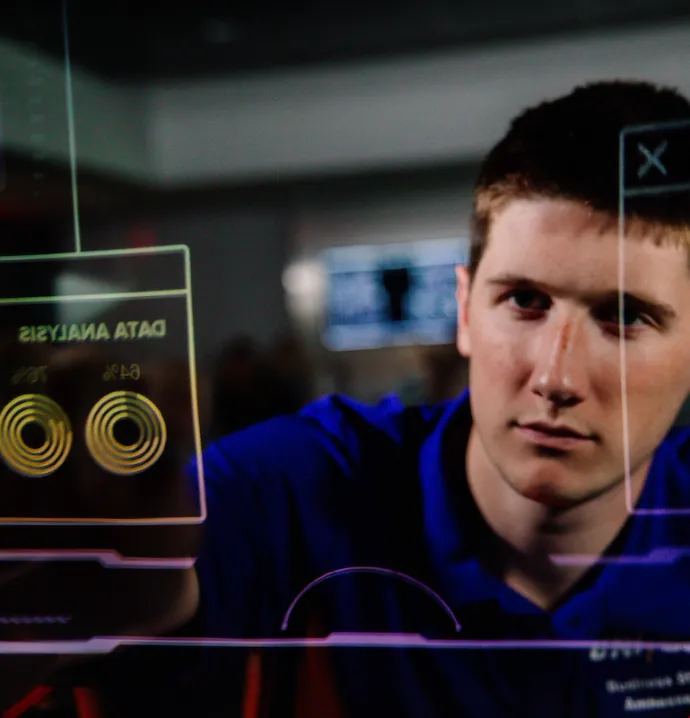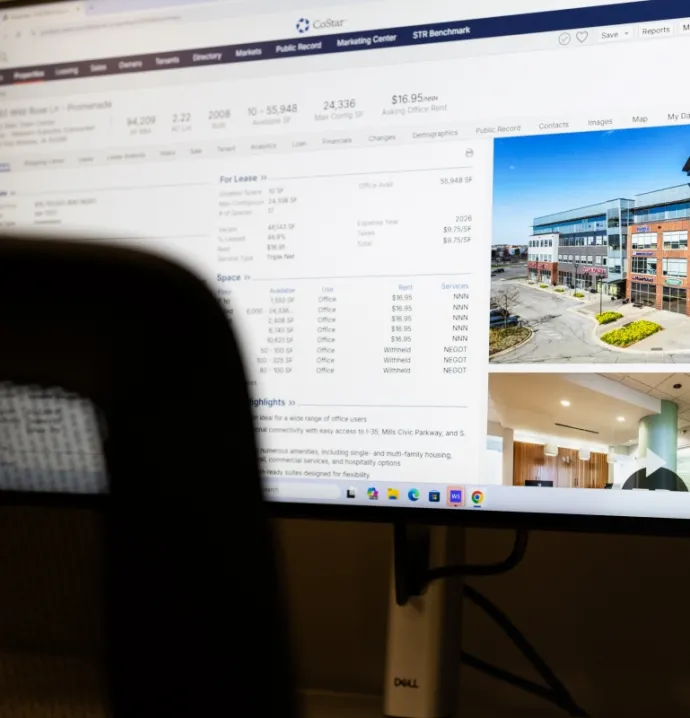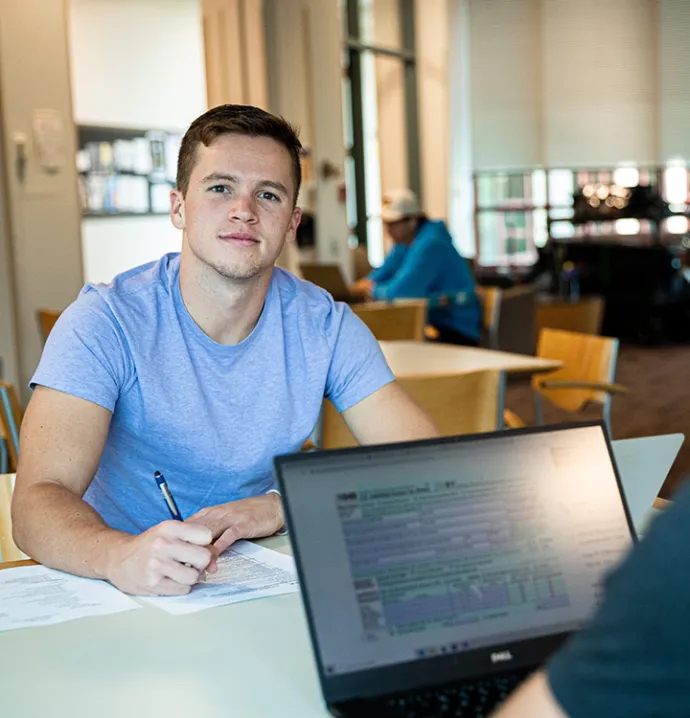UNI-SHRM student organization wins award for semester-long podcast project
UNI-SHRM student organization wins award for semester-long podcast project
In June, the U.S. Supreme Court made a landmark decision, ruling that the 1964 Civil Rights Act prohibits employers from discriminating against workers based on their sexual orientation or gender identity. Not only was this a giant step forward for the LGBTQ+ community, but it also affected the human resources industry, changing the way they trained and promoted inclusivity in the workplace.
That piqued the interest of students Kaylee Wurth, Aleah Vaske, Skylar Rueter and Claudia Mathis — members of the UNI Business' student organization Society — who wanted to learn more about the case and its implications. In late summer, they decided to launch a project as a part of the Social Changemaker Competition, a contest for universities in Iowa and Minnesota challenging students to create innovative solutions to complex social problems.
Signing up for the competition was an intriguing way to learn more about the industry. But it ended up being an award-winning decision. The organization won third place and the $2,000 reward for “Generation HR,” the podcast they launched for the contest.
“I wanted to do something that would be different than what we’ve done before,” said Wurth, who serves as president of UNI-SHRM. “So I just signed us up for the competition without any idea of what we were going to do. I knew that if we all put our brains together, we’d figure it out.”
The team started putting the pieces together with a survey, asking individuals what they did for a living, if they had heard about the Supreme Court ruling and whether or not they thought it was their employer’s or university’s responsibility to tell them about the ruling. Through social media, the survey reached hundreds of people.
The results were shocking: nobody surveyed in the LGBTQ+ community had been educated about the decision by their employer or university. Also, 35% of LGBTQ+ respondents said they learned about the ruling on their own. And 36% felt as though they should have been made aware by their employer or university.
“We saw a problem with that because if it directly affects you, then you should have been made aware of something like that,” Wurth said. “Regardless if your employer’s policies already covered the new law, it’s still monumental in the LGBTQ+ community.”
Right away, Wurth and the rest of the team knew the key to this project was raising awareness — not just for LGBTQ+ individuals, but for human resources professionals. UNI-SHRM partnered with the Cedar Valley Society for Human Resource Management (Cedar Valley SHRM) and launched a podcast, called “Generation HR,” co-hosted by Wurth and Vaske.
The first episode was an introduction. Wurth and Vaske informed listeners why this topic was important to them and how they planned to tackle the next few episodes.
“We wanted [our project] to be something that people could do in their own time, and we decided on this podcast,” Vaske said. “We were able to get so many different people to speak from the Cedar Valley and talking about their experiences. We were able to use this podcast to open the door to something bigger: The conversation about making sure we’re going above and beyond to make sure LGBTQ+ members are included in our organizations.”
The podcast featured five episodes, bringing on local experts and stories. A few of the guests were an LGBTQ+ student, Kingsley Botchway II, chief human resource and equity officer at the Waterloo Community School District, and Kyle Roed and Molly Burdess from Cedar Valley SHRM.
At the end of the project, UNI-SHRM presented their series in front of a panel of expert judges. The team shared a slide show with different stats and data and answered questions. Later in the day, they learned they took third place — a remarkable achievement considering they didn’t necessarily create the project to win.
“We weren’t coming in because we needed to win it,” Wurth said. “We were already excited about what we had done. Of course, we were confident in our project, but there were so many other amazing projects as well. Our first thoughts were that we couldn’t wait to tell everyone this is what happened.”
Russell Guay, associate professor of management and adviser to UNI-SHRM, was impressed with the team from the very beginning, particularly their ability to turn data collection into a tangible project.
“I was very impressed with how this was truly a student-driven project with very little influence on my part,” Guay said. “Their efforts and success will definitely leave a legacy on UNI-SHRM and I hope their success will be an inspiration to other students about how you can give back, make a difference and bring about positive change.”
“Generation HR” has inspired Wurth to create even more. She wants to create her own podcast around human resources issues.
“I want this to be long-term,” Wurth said. “And I see the benefits of people listening to Generation Z’ers like us. I think it’s really important. I learned that just because things make you uncomfortable doesn’t mean you shouldn’t do it. I never thought, at the beginning of the semester, I’d have a podcast or that I’d be sharing my voice and opinions all over the internet.”
Vaske feels similarly. She was passionate about this project because it allowed her to ask questions that helped others understand complex issues. For example, on the podcast with Botchway II, they discussed the push for gender-neutral bathrooms in Waterloo schools. There was a lot of feedback from the community, and Botchway II explained it was important to keep an open mind in conversations, to hear what others had to say and why they felt the way they did.
“I feel that is a common theme for our podcast,” Vaske said. “We’re not communicating the why well enough to others. That’s why a lot of things aren’t getting done. But when we had these conversations on our podcast, I felt we were giving people a pathway or resource to have these conversations and make change within their organization.”
You can learn more about the podcast and find episodes here.




